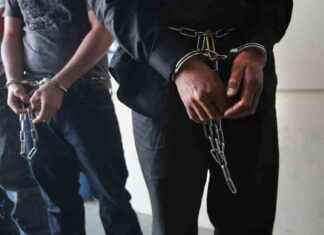Abbottabad, May 2, 2011 Operation “Neptune’s Spear” is launched. During the night, American helicopters rush into the Pakistani sky with 23 elite soldiers on board, charged with a mission: to kill Osama bin Laden, public enemy number one since September 11, 2001 in New York. His fortified villa is located only a hundred meters from a Pakistani military academy.
The operation “pulverizes sixty years of close collaboration with Pakistan,” the voiceover says. The American army took the decision not to warn its ally of the operation and to violate the sovereignty of its territory, to avoid leaks, suspecting the country’s intelligence agency, the InterServices Intelligence, the ISI, to knowingly shelter the leader of Al-Qaeda for seven years. The ISI has always denied it.
The White House ended up understanding the formidable double game led by this South Asian ally on which American presidents believed they could rely to fight the Soviet Union in Afghanistan. They have illusions about this country held by the army, ally of the Western world, on one hand, protector of radical Islam, on the other, and breeding ground of international jihadism.
Tacit support from the United States
Jean-Pierre Canet, author of the documentary Iraq, destruction of a nation in 2021, explores, in Pakistan, our best enemy, the troubled waters of the “land of the pure”, born in 1947, of the partition of the Indian Empire . Highlighting the foolish bets of the United States.
For years, the Islamic Republic of Pakistan benefited from millions of American dollars intended to arm the opposition to the Soviets. It took the opportunity to strengthen its military capabilities, acquire the atomic bomb, challenge neighboring India, its only real enemy, and try to take back Kashmir. The documentary, in two episodes, highlights the strategy of the Pakistani military who exploited Islam, burying the democratic ideals of the father of the nation, Mohammad Ali Jinnah.
With the more or less tacit support of the United States, the Pakistani army seized power three times. Even the austere Zia Ul Haq does not put off the Americans. Author of the 1977 coup d’état, the soldier imposed a dictatorship based on ultraconservative Islam. He resorted to Sharia law, Islamized institutions and justice, established a law against blasphemy, and created militias. It allocates, with American dollars, considerable resources to the ISI which operates internally and internationally, similar to the KGB. The intelligence services control everything. “The West generally ignores the crimes of the ISI,” laments journalist Arif Jamal, a specialist in jihadist groups and exiled for security reasons since 2007.
For years, the ISI and the CIA supported, financed and armed the Afghan resistance, made up of ultra-conservative Pashtuns, who had found exile in Pakistan, in the tribal zones, notably the Haqqani clan, without imagining that they would one day become their worst enemies. “We did not see the danger coming at that time,” admits a French officer from the General Directorate of External Security, Olivier Mas.
Pakistan too will be caught in its own trap. The ISI has manufactured its own “monsters”, dozens of Islamist groups, which continue to sow terror in the “land of the pure”.






